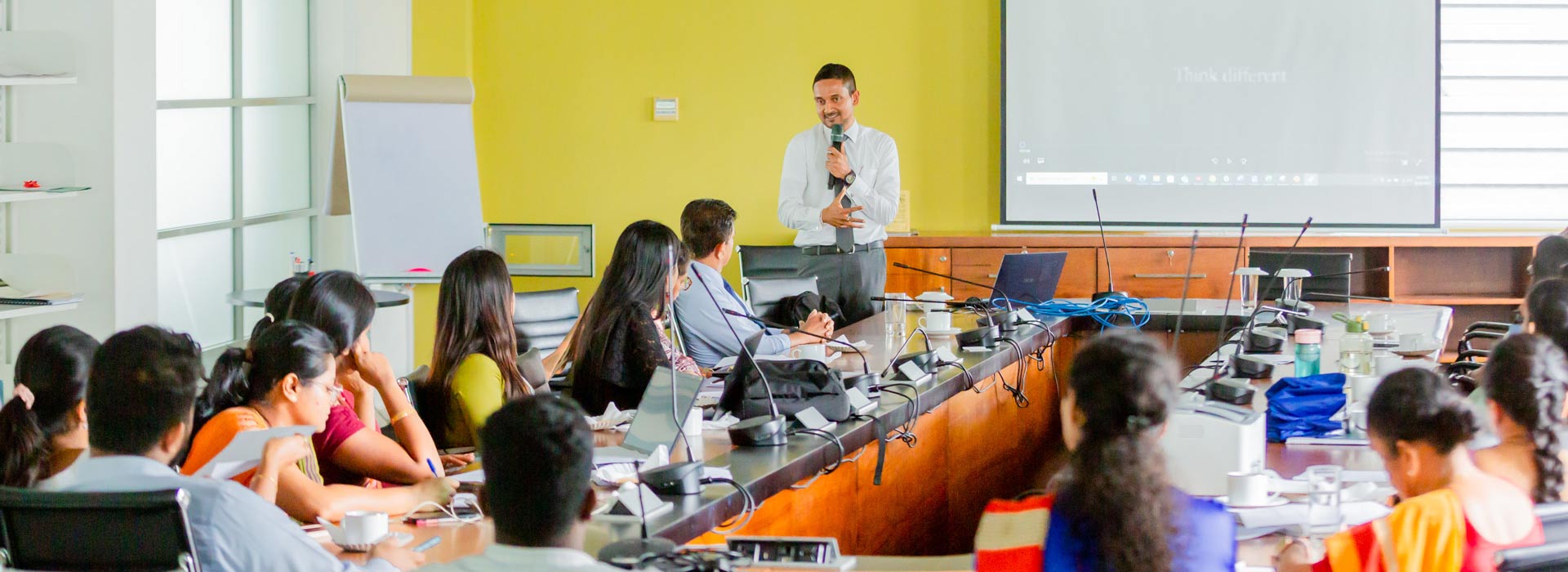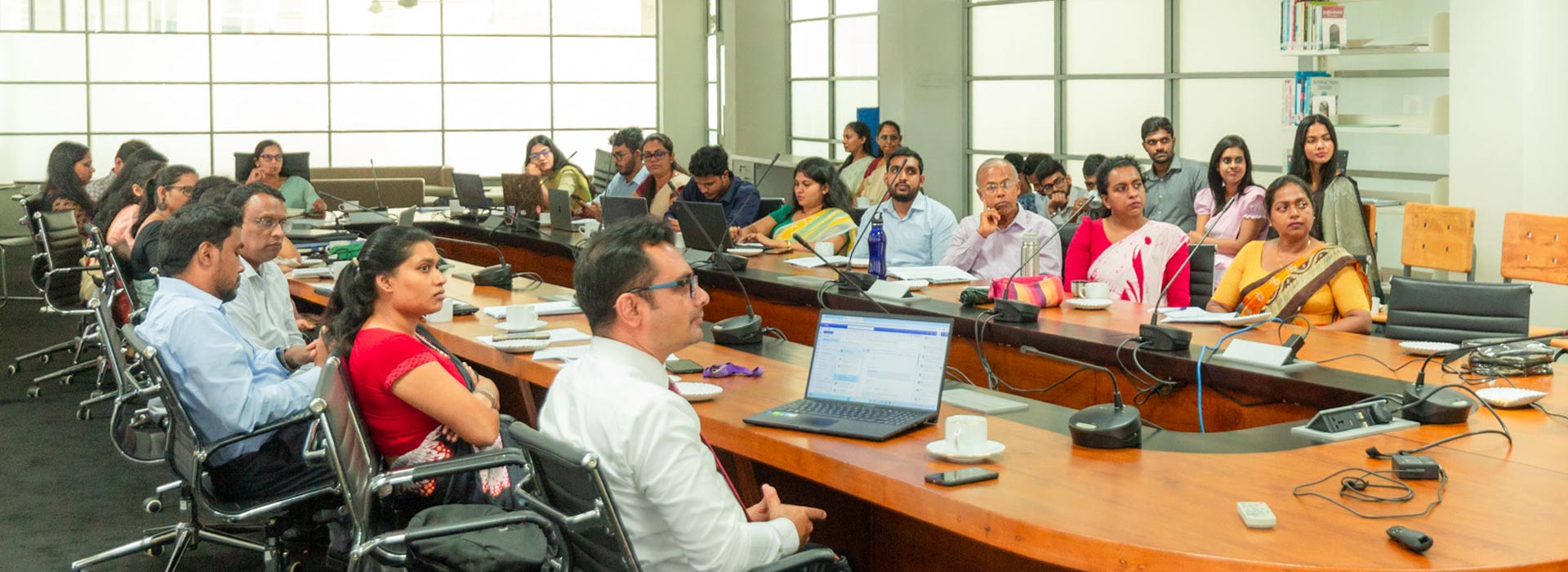Quality Assurance and Staff Development Center (QASDC)



Activities of QASDC
Global Standards
GLOBAL BENCHMARKING AND ACADEMIC STANDARDS
We commit to a strategic process of external benchmarking to ensure NSBM’s academic standards are competitive on a global scale.
🎯 Modeling International Excellence
Our internal quality assurance mechanisms are meticulously modeled after the best practices of leading international universities (e.g., University of Auckland, University of Plymouth, Harvard School of Engineering). This proactive approach informs our curriculum design, teaching methodologies, and quality control systems.
🏆 A Roadmap to Global Recognition
By aligning with rigorous international standards and continuously investing in faculty excellence, NSBM is positioning itself for a clear pathway toward recognition in international university rankings. This commitment guarantees that an NSBM degree is recognized for its quality worldwide.
Compliance
REGULATORY COMPLIANCE AND OVERSIGHT
QASDC is responsible for ensuring that all academic programs and processes meet the required national benchmarks, securing the integrity of our qualifications.
🏛️ UGC Alignment
The QASDC ensures every program and institutional process adheres strictly to the regulations and standards set by the University Grants Commission (UGC) of Sri Lanka.
📜 SLQF Adherence
All academic offerings are systematically mapped to the Sri Lanka Qualifications Framework (SLQF). This guarantees that NSBM’s qualifications are officially recognized across the country at their intended levels of achievement and are comparable to other national and international credentials.
Development
ACADEMIC DEVELOPMENT AND CURRICULUM INNOVATION
NSBM’s commitment to academic quality is managed through a structured, multi-stage process of development, validation, and review, ensuring that our programs are always high-quality and relevant.
📚 Program and Award Development
Academic strategies begin with an assessment of market demand and resource availability. This process involves:
💡 Initial Consultation
Program initiators engage with the Marketing Department and industry experts to draft a preliminary proposal.
✅ Rigorous Validation
The QAU coordinates formal validation panels composed of internal faculty and external academic and industry experts. These panels rigorously evaluate every aspect of the program, including aims, learning outcomes, curriculum, and assessment methods, before final approval by the Senate and Academic Governing Council.
🔧 Module Design and Review
Modules are constantly reviewed to maintain academic quality:
🔄 Continuous Refinement
Proposals for new modules or amendments are reviewed by faculty quality committees.
🌐 External Input
Crucially, feedback from external examiners is incorporated before final approval, ensuring alignment with national and international benchmarks.
👨🏫 Ensuring Teaching Quality
Teaching excellence is secured through a robust staff management framework:
🎯 Rigorous Staff Recruitment
Staff are recruited via a rigorous process that includes demonstration lectures and the assessment of subject expertise, communication, and organizational skills.
📝 External Examiners
Appointed through a transparent QAU process, external examiners provide independent oversight on assessment fairness and academic standards, offering valuable feedback for program modification.
Development
STAFF DEVELOPMENT PROGRAMME
The Staff Development Programme (SDP) for Probationary Lecturers at NSBM Green University is designed to support newly recruited academics in their transition into teaching and research roles. The programme provides comprehensive training in pedagogy, assessment, research, and university governance to ensure participants are fully equipped to perform effectively and confidently as university educators.
👥 Programme Governance
The programme is governed by a dedicated committee consisting of representatives from the QASDC, senior faculty members, and external experts.
- Programme Coordinator – Oversees implementation and quality
- Advisory Board – Provides strategic guidance
- Module Coordinators – Deliver and assess modules
- Administrative Staff – Support operations
📖 Programme Structure
12 Modules | 150 Hours | 12 Weeks
Covering critical areas including pedagogy, curriculum design, ICT integration, assessment, research, strategic planning, and sustainability. Conducted on weekends in both physical and virtual formats.
🏅 Certification and Evaluation
80% Attendance
Module Assignments
Reflective Portfolio
Successful participants receive UGC-recognized certification as part of academic probation completion requirement.
Integration
CONTINUOUS FEEDBACK AND INDUSTRY INTEGRATION
NSBM maintains a dynamic feedback loop that incorporates both internal evaluations and external industry insights to drive curriculum quality and graduate employability.
📈 Continuous Feedback
A key practice involves the biannual collection of student feedback and the implementation of peer evaluations to assess faculty performance. These two evaluation cycles enable continuous reflection, encourage reflective practice, and continuously improve instructional approaches.
🏢 Industry Integration (CART)
The Company-Academic Round Table (CART) is a critical mechanism that brings industry professionals and academic staff together. This collaboration ensures NSBM’s curriculum remains relevant and strategically aligned with the future demands of the professional workforce.
🤝 Stakeholder Engagement
Formal consultations with employers, alumni, and industry advisory boards are used to integrate industry expectations and technological advancements directly into curriculum design and assessment.


